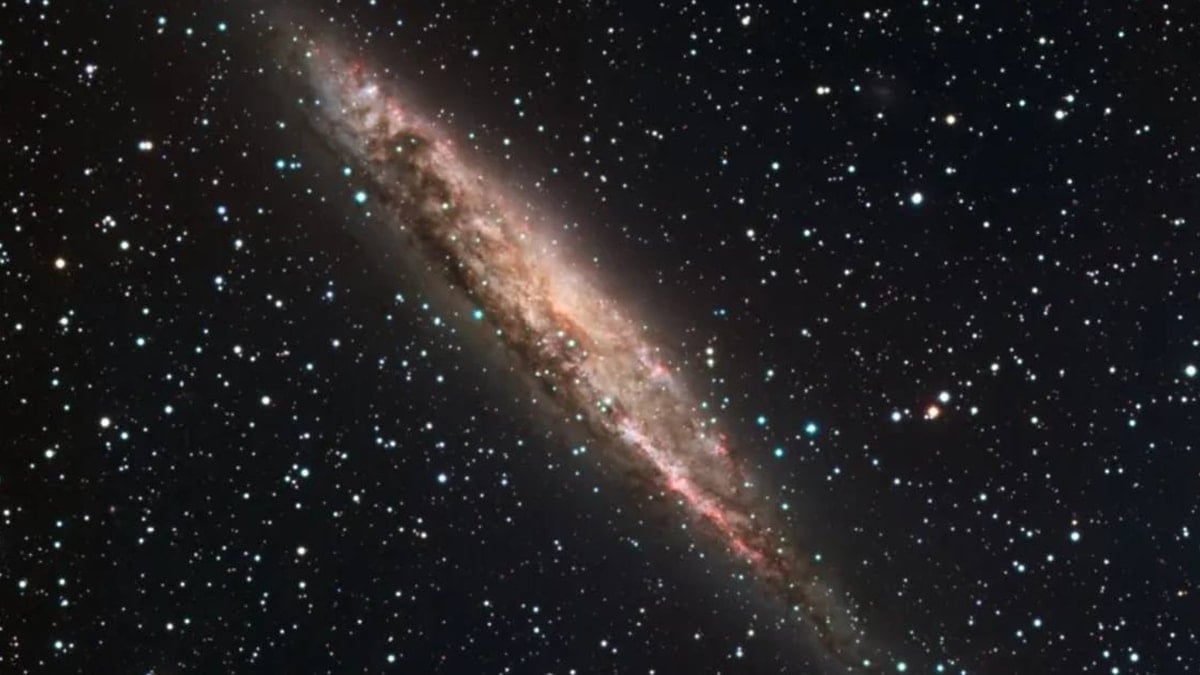Exciting discovery: A galaxy frozen in time discovered

Italian scientists have discovered a galaxy located 3 billion light-years away that has remained virtually unchanged for 7 billion years. This structure, designated "KiDS J0842+0059," is a rare example of a "fossil galaxy" in astronomy. Fossil galaxies are defined as celestial bodies that formed stars rapidly in the early universe but later remained isolated, rather than merging with other galaxies. Thanks to these characteristics, they offer crucial insights into the formation of the universe.

According to experts, giant galaxies generally form in two stages. In the first stage, stars are born very quickly, and the galaxy becomes a compact, compact structure. In the second stage, mergers with surrounding galaxies begin, and the structure grows and develops. However, fossil galaxies almost never experience this second stage.
KiDS J0842+0059 formed in the universe's youth and hasn't undergone any subsequent mergers. Researchers note that 99.5 percent of the galaxy's stars formed very early. Such galaxies contain billions of Sun-like stars, but new star formation has almost completely ceased.
Dr. Chiara Spiniello, one of the study's leaders, estimates that such galaxies exist in the universe at a rate of "one in a million." The first traces of KiDS J0842+0059 were discovered in 2018 by the VLT Telescope in Chile. Its definitive identification was made possible by high-resolution observations made with the Large Binocular Telescope in Arizona.
The European Space Agency's Euclid Telescope, launched in 2023, will collect information about dark matter and energy and make it easier to detect fossil galaxies. Scientists believe this telescope will be able to find many more fossil galaxies.
SÖZCÜ





